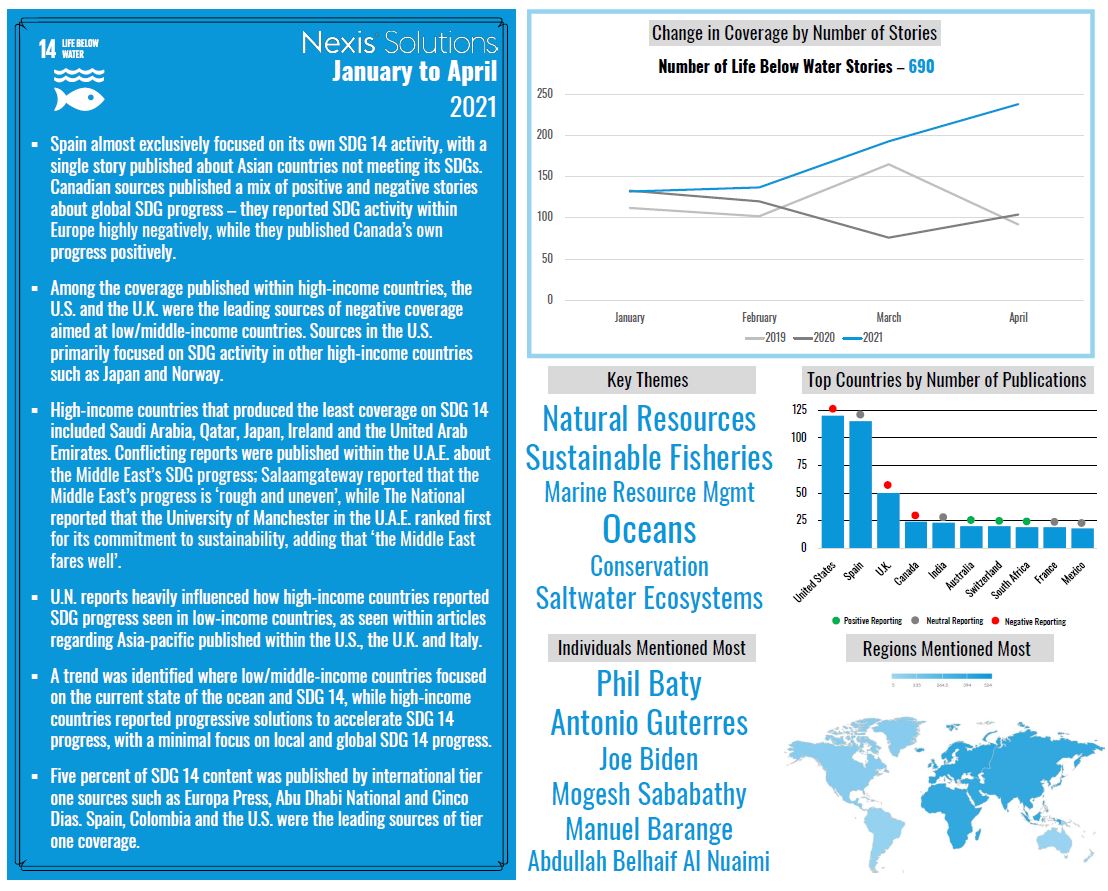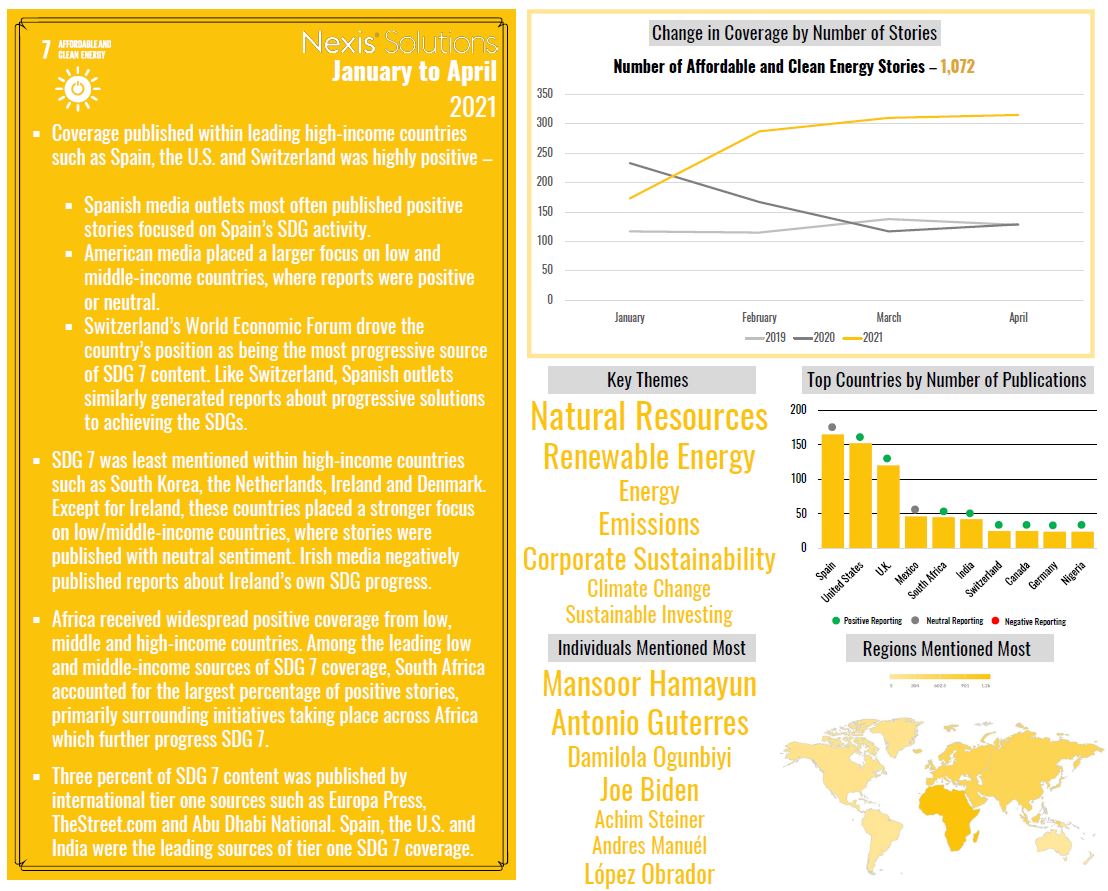LexisNexis Legal & Professional
Nexis Newsdesk™ has created graphics on the SDGs and the Global Media Landscape, offering charts & insights into global media coverage of the Sustainable Development Goals. View findings for Global Goal 14.
LexisNexis Legal & Professional
Nexis Newsdesk™ has created graphics on the SDGs and the Global Media Landscape, offering charts & insights into global media coverage of the Sustainable Development Goals. View findings for Global Goal 7.
ICIS,
Feburary 12th 2021
The latest price movement in the European carbon markets (EU ETS) has reached its all-time high of €40/tonne, which demonstrates how much uncertainty is currently present in the market. Contributing to SDGs 12 and 13, this white paper provides scenario-based impact analysis of the market stability reserve in the context of the EU ETS review.
Global Partnership for Sustainable Development Data, January 2020
National statistics are an essential component of policy making. Yet many national statistical systems face challenges in collecting, producing, analysing and disseminating the data required for sustainable development. Furthering SDGs 10 and 15. This report introduce a pioneering approach to capacity development – Capacity Development 4.0 – that brings together new data stakeholders, does more to involve users and promotes a holistic view of statistical capacity development.
This case study uses survey and satellite data to help better protect those working in agriculture in Kenya and Tanzania against drought and climate change, helping to advance SDG 2 and 13.
This case study shows the contribution of the Global Partnership for Sustainable Development Data to the Open Algorithms Initiative. It addresses how to unlock the potential of private sector data for public good purposed in a safe ethical, scalable and sustainable manner furthering goals 9 and 17.
Partner content
United Nations University, November 2019.
Contributing to SDG 10 (Reduced Inequalities) and SDG 16 (Peace, Justice and Strong Institutions), this research prioritized engaging with young people as research partners in order to examine the needs of children exiting violent armed groups.
Global Partnership for Sustainable Development Data, October 2019
Legal identity for all – including women, children, and other vulnerable groups – is critical for achieving the SDGs. Linking Civil Registration and Vital Statistics (CRVS) with identity management systems can transform how governments empower and provide for their populations. This compendium brings together good practices from select countries that have made great effort in linking these systems and highlights the resulting benefits. This contributes to SDG 10 and 16.
Partner content
United Nations University, September 2019.
Directly relevant to SDGs 8 (Decent Work and Economic Growth) and 17 (Partnerships for the Goals), this report explores a public-private partnership which puts the financial sector at the heart of global efforts to end modern slavery and human trafficking and accelerate action in eradicating these practices.



